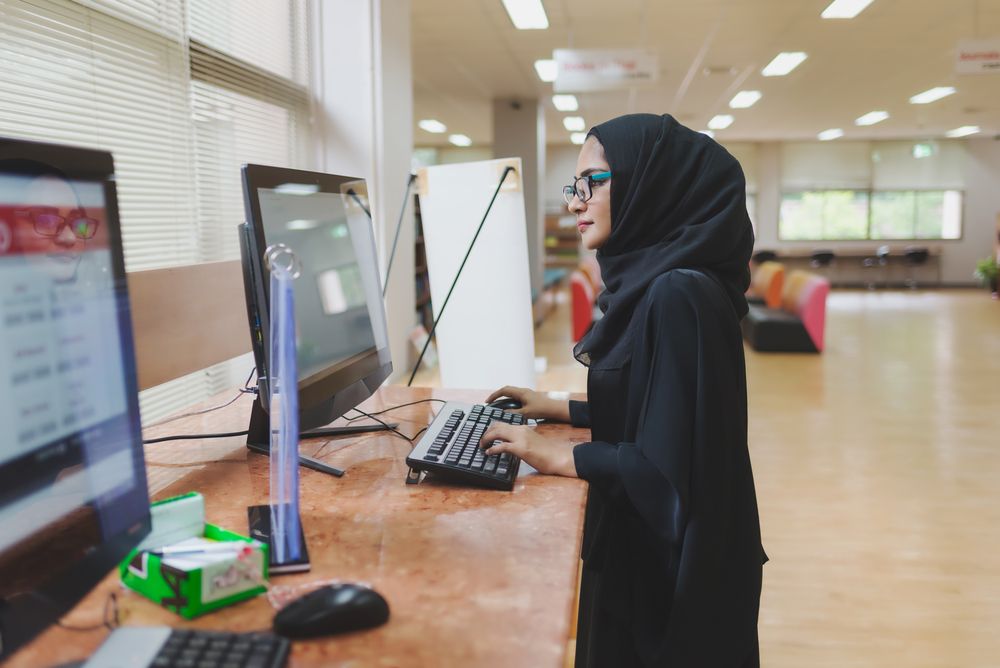Coding and conservatism: Saudi women learn online

Saudi Arabia’s conservative expectations of women have been a boon for the online education sector in the country. While recent reforms like allowing women to drive and run in municipal elections have encouraged greater participation, the majority are still bound by the country’s more restrictive traditions and regulations regarding travel, gender segregation and legal participation.
These restrictions have paved the way for a more active female audience online and online education is a gateway to acquiring the skills necessary to participate in the economy.
For US-based Udacity, which launched its online coding programme in Saudi Arabia in November 2016, about 55 per cent of its participants are now women, ahead of the US and Europe where female participation is about 30 per cent.
“They [Saudi women] see technology as one of the most viable ways they can contribute to the economy,” said Hisham Elaraby, regional director of Middle East and North Africa at Udacity. “The reason is that tech jobs in general lend themselves to remote work. They will be able to freelance and still work from home.”
According to data from The World Bank, women account for just 22 per cent of the labour force in Saudi Arabia, while the global average stands at 49 per cent. The Kingdom’s Vision 2030 economic plan highlights increased participation of women in the workplace and society as one of the key ways to encourage economic growth.
Udacity launched in the region in Egypt in 2015 and has partnered with the UAE’s One Million Arab Coders initiative, in which Saudi women are also active participants.
“There’s a bit of a challenge in terms of changing the mindset around online education,” said Elaraby. “But from what we’ve seen in terms of adoption at this pace, things change very fast. There’s a lot of pent up demand, the young generation here seized the opportunity of tech. They have seen what’s possible.”
The landscape is similar for Saudi Arabia’s Noon Academy, an online platform for tuition for high school students. About 70 per cent of users on its platform are girls who are more engaged, using the platform to learn with their peers.
“We have more girls compared to boys because girls have limitations [in Saudi Arabia], it’s not easy to find transportation to meet their tutors,” said Abdulaziz Alsaeed, co-founder and chief operating officer at Noon Academy.
There are fewer universities for women in the country and thus fewer female teachers and tutors. Alsaeed believes the imbalance will eventually even out as female participation increases in society. The company began to make learning more fun and engaging and today has 1.6 million students on its platform, about 35 per cent of the online education market.
As more women [and men] learn online and upskill, the private sector needs to be ready to absorb the emerging talent and create jobs.
“It’s good for the government to act as a catalyst, but at some point, the private sector has to stand up,” said Elaraby who believes the region is doing well in bridging the gap in its skills shortage.


